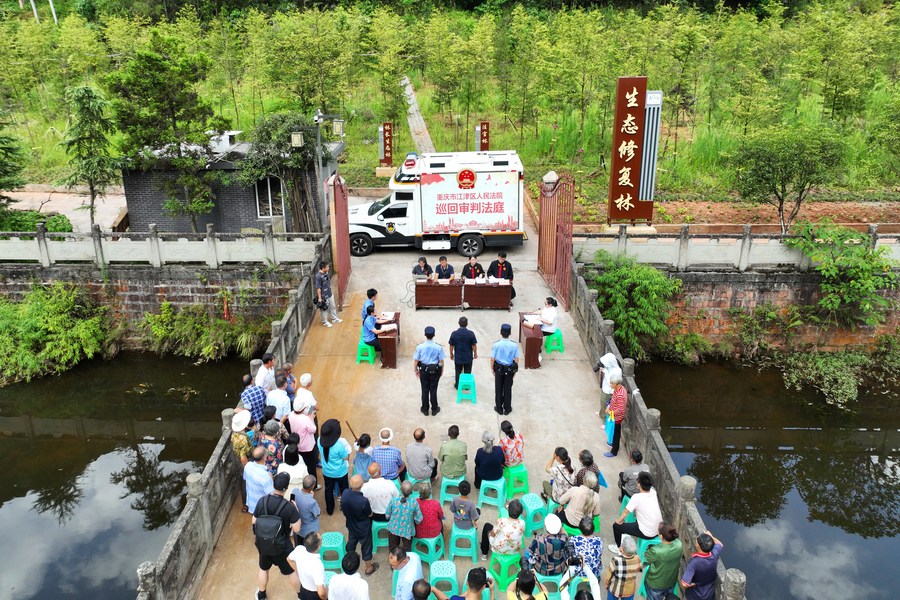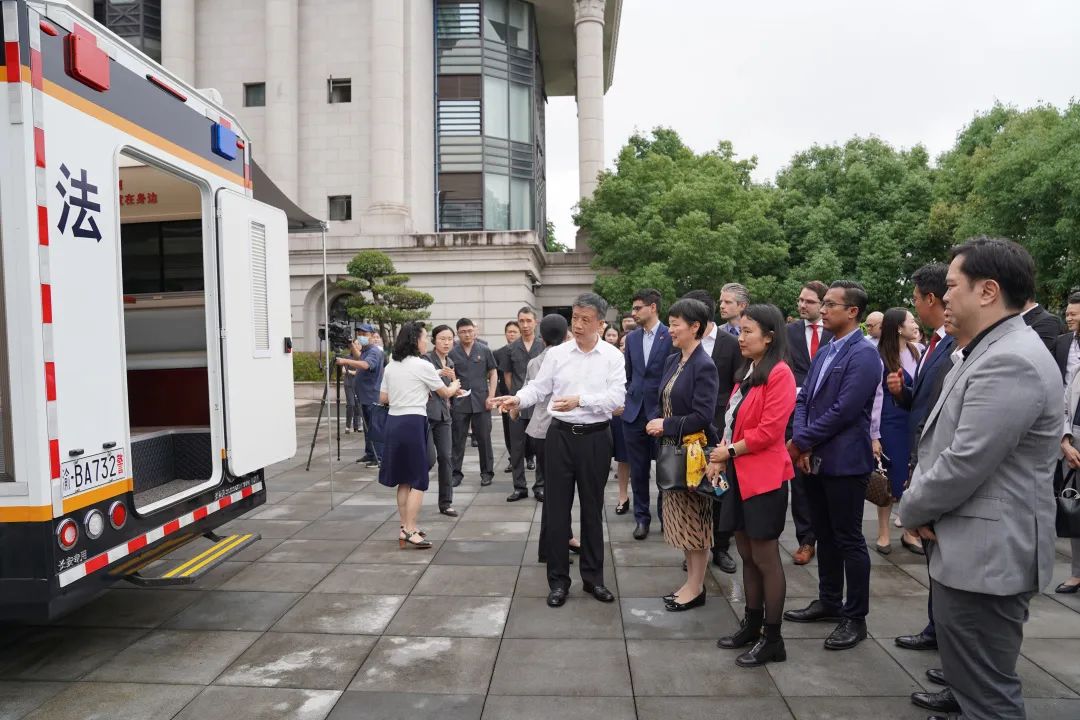 Bridging News
Bridging News
Chongqing FTZ's Mobile Court Conducts Legal Publicity in International Corporations
Chongqing – Mobile courts, a mature litigation service approach already used in various parts of Chongqing, have recently rolled into the Chongqing Pilot Free Trade Zone, offering convenient commercial litigation services to the area.
Chongqing Pilot Free Trade Zone, a regional free trade zone approved to be established by the State Council in 2017, aims to encourage system innovation and make the relevant innovated policies replicable and promotional.
Representatives from the Chongqing Pilot Free Trade Zone Primary People's Court informed the public about the up-to-date mechanisms and service innovations of the Pilot Free Trade Zone court, including the distinctive mobile court system, a hallmark of China's legal outreach, during the 21st China International Motorcycle Trade Exhibition (CIMAMotor 2023) from 15 to 18 September, in Chongqing.
Hosts are introducing the latest development of the Pilot Free Trade Zone court. (Photo/Kenny Dong)
The Pilot Free Trade Zone uses mobile courts, including some international corporations, to conduct legal publicity.
The court showed in the mobile truck. (Photo/Kenny Dong)
Mobile courts were first established in the early days of China when a majority lived in hard-to-reach rural areas and mountains. As China's urbanization progressed, around 500 million people still resided in the countryside at the end of 2022, according to the National Development and Reform Commission.
By sending mobile courts to conduct circuit trials on typical cases in mountain areas, the legal principles can be more widely disseminated, reinforcing the government's legitimacy.
People's Daily has reported instances in some ethnic minority regions where local judges, bearing the national emblem, traveled on horseback, yaks, or even zip lines to handle cases in remote villages.
In Chongqing, these mobile courts have become "vehicle-mounted convenience courts," a local variation. On August 10, the Jiangjin District Primary People's Court of Chongqing dispatched a mobile court to Simian Mountain to adjudicate a forest logging case. A hearing was held locally, with village residents invited, to boost the legal consciousness among villagers.
According to the Pilot Free Trade Zone court, in 2022, the vehicle-mounted convenience courts promoted the rule of law in over 3,600 instances. They provided intelligent litigation services like evidence submission and document delivery more than 7,000 times.

A mobile court is parked near an ecological restoration forest to hear a case of deforestation in Simian Mountain, Jiangjin District of Chongqing. (Photo/The People's Court of Jiangjin District)
The vehicle-mounted convenience court has evolved from its first generation to its current third, gravitating towards more sophisticated capabilities. For instance, the modern-day mobile court, equipped with 5G and AI technology, can facilitate remote filing, online hearings, and online mediation.

The local judiciary invites diplomates to tour the mobile courts. (Photo/Chongqing People's Court)
 Related Stories
Related Stories